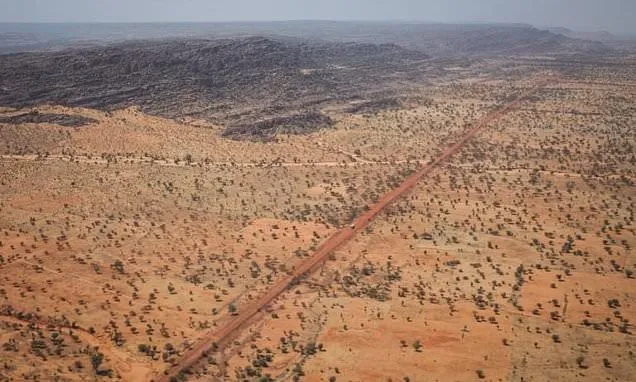Africa's turbulent Sahel region has been plagued by violence from jihadist groups linked to either Al-Qaeda or the Islamic State.
In the Sahel, a region plagued by jihadist violence, there are roads people steer clear of and others they travel on with their heart in their mouth.
Such was the case for Moussa when in March he had to take his mother's body to another village for burial, forcing him onto National route 15 in central Mali.
While on it, he witnessed a terrifying scene -- jihadists on motorcycles, armed with military-grade weapons, their heads wrapped in turbans, kidnapping passengers from a bus.
"They stopped us, but seeing my mother's body, they told us to continue," he told AFP.
Africa's turbulent Sahel region, sometimes referred to as the global epicentre of terrorism, has been plagued by violence from jihadist groups linked to Al-Qaeda or the Islamic State for more than a decade.
'Prime target'
According to a recent OECD report, "70 percent of violent events and 65 percent of fatalities in North and West Africa occur within just one kilometre (0.6 mile) of a road".
In the central Sahel -- as well as the Lake Chad basin and western Cameroon -- some roads "have become epicentres of violence", the 145-page report said, disrupting financial trade and governance.
"Transport routes have become a prime target for attacks against government forces, particularly military convoys, and a means to pressure rural communities," said Olivier Walther, a co-author of the study, adding that jihadists regularly set up roadblocks around towns.
Road insecurity "is directly linked to the spread of jihadist insurgencies" in the region, Walther, an associate professor at the University of Florida, said.
With 433 recorded incidents since 2012, he said Mali's National route 16 connecting Mopti in central Mali to Gao in the north is "by far" the most dangerous transport axis.
'Death corridor'
South of the Malian border, in Burkina Faso, "all roads leading to Djibo" are dangerous "due to blockades imposed on the town" by the Al-Qaeda-affiliated Group for the Support of Islam and Muslims (JNIM), Walther said.
National route 22 that connects Bourzanga, Djibo and the capital Ouagadougou has been nicknamed "the death corridor" due to the frequency of deadly jihadist attacks.
In September 2022, jihadists burned over 200 supply trucks on the Bourzanga-Djibo section, killing 11 soldiers and civilian volunteers supporting the army, with numerous civilians missing.
A few months later, Abdoul Fhatave Tiemtore, editor-in-chief of the Burkinabe radio station Omega, wrote about his experience of travelling that section of road.
He described feeling "sadness, anxiety, fear and stress" after witnessing "truly horrific things".
"We saw bodies that were still fresh, decaying bodies, abandoned vehicles and craters from mines on the road," Tiemtore wrote in an article.
'Tired of counting our dead'
Niger has two high-risk highways, both in the southwest and both leading to Burkina Faso.
Since 2022, it has been nearly impossible to travel from the capital Niamey to Burkina's Ouagadougou by road due to the threat posed by jihadists along the 600-kilometre (373-mile) border between the two countries.
The National Association of Wood Operators in Niger told AFP in May that it had lost 24 of its drivers and apprentices since 2015 and that 52 of its trucks had been burnt on roads in the southwest of the country.
"We are tired of counting our dead," another Nigerien truck drivers' union said, with several of its members, drivers and apprentices also killed in attacks.
"The terrorists have banned us from travelling to local fairs; they even held some drivers hostage in the bush for days," said Zakaria Seyni, a Nigerien driver based in the tri-border region shared by Niger, Burkina and Mali -- a hotspot for jihadist attacks.
According to the OECD, security measures in the Sahel must be accompanied by the development of transportation infrastructure, cross-border cooperation and economic integration to promote stability.
The scarcity of roads and their poor condition have forced armies in the region to travel in convoys, leaving rural areas to jihadists, Walther said.
An alternative would be to rethink the way armies move around, using for instance "vehicles as light and versatile as those of jihadists", such as motorcycles, he said.
